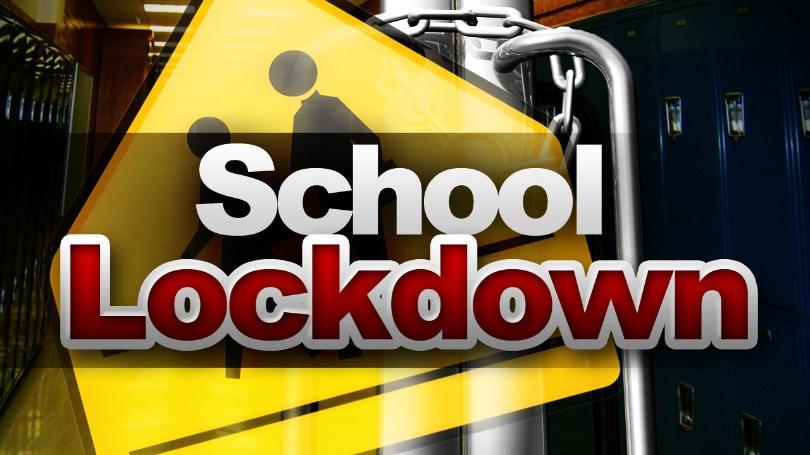 “This is a lockdown. This is a lockdown. This is NOT A DRILL.”
“This is a lockdown. This is a lockdown. This is NOT A DRILL.”
That’s what the students at the public schools heard on Friday in the community where I live, an island off the coast of Massachusetts. They pushed tables against doors, crouched in corners, and tried not to make noise. They hoped and prayed that they would be allowed to live.
Thirty minutes went by before they learned that it was a false alarm. Someone had accidentally triggered the panic button.
Thirty minutes went by in which every adult and child in the school wondered if the shooter would find them. And when.
Texts were sent, like this one: “I don’t know what might happen. I love you, Mom.”
Some students could not bear to wait and jumped out of second floor windows.
I can’t begin to guess why they jumped… Was it fear, plain and simple? Survival instinct? A despairing belief that it might not matter but I’ll try anyway? It seems that “I want to live” looks like shelter in place to one child and it looks like jump out the window to another. What would you do?
By incredible, ironic chance, a panel discussion about Massachusetts gun legislation was scheduled for later in the day and I had planned to attend. I did attend, completely unsure what it would look like in the wake of the morning’s events. Three members of the Massachusetts legislature were there, as well as a representative from Moms Against Gun Violence, and a high school student activist extremely involved in the national gun control movement.
That boy told his story.
“A fourteen-year-old girl one foot away from me was crying so hard that tears flowed in a stream from her chin. All she could say, over and over and over was, ‘Where is he? Where is he?’”
The boy, let’s call him JJ, went on: “By he, she meant the man out there somewhere who wanted her dead.”
He explained, “I did not know how long I’d be alive.” He said that, or words to that effect, repeatedly as he processed before our eyes.
No one, he explained, thought, “Maybe it’s an earthquake.” They’ve been trained to fear something far worse than the shifting of tectonic plates, the collapse of buildings, and a tsunami aftershock.
By the time we saw JJ, he was very, very angry. But there was more. Much more. This brave teenager, who somehow managed to have the stomach and the grit to make it to his speaking commitment that afternoon, was traumatized.
I think we say that word a bit too freely sometimes: “I was traumatized,” or, “That was so traumatic.” Many people in our country experience true trauma—abuse and rape victims, children ripped from their parents and kept in cages, the victims and survivors of mass shootings, to name just a few examples. We need to be careful to use words precisely.
Children who thought they were about to die while in a place where they should always and without question feel safe? That is trauma.
However, JJ never once said, “I am traumatized.” He was too inside the moment to think about defining it. But all of us in that room heard it in his voice. Saw it in his face. He will never be the same. None of them will.
And JJ did NOT have to face a shooter. He will NOT have to go to funerals for the next month. But he believed he would die. That his friends, his teachers, might be gone in the flash of a semi-automatic weapon and lie in their own blood until some indeterminate moment when things were safe again.
Outside, surrounded by the flashing lights of every police car on the island, parents gathered, awaiting news, wondering if their babies would come back to them.
This is the country we live in. This is the United States of America. A nation of children who know how to shelter in place, push tables against doors, be very very very quiet. While wanting their mothers. While crying, while needing human connection, while being paralyzed by the most horrific of thoughts. A “civilized” society in which 5-year-olds know what a “shooter” is and must understand that they and they alone are responsible for their actions in attempting to avoid being murdered. They must also know this: if they reveal their position to the shooter, they may be to blame for the deaths of everyone else in that room. Deal with that, why don’t you.
I know I could not.
Marjory Decker, state legislator who sponsored the red flag law that passed in MA in 2018, spoke of her own young children. One of them has night terrors because of the lockdown drills at her school. I have heard similar stories from others whose children are deeply troubled just by being prepared for an active shooter in their schools. Why wouldn’t they be?
As horrible as it is that the alarm went off in our schools by “mistake”—why do we even have to have a panic button in every school? Why must we prepare our children for imminent death because some dude decides he needs to shoot things, AND he can get a gun more easily than a car or a marriage license?
I am intensely proud to be part of the agency that was called upon and that responded to this event on Friday. Our clinicians rushed to the scene and helped children and parents, teachers and administrators navigate the fearful reality of this accidental “not a drill” that they had to live through for 30 whole minutes. We will be back again on Monday, helping as best we can… But I despair. Why does this have to be a thing? How can the gun lobby matter more than the lives and souls of children?
Please explain.